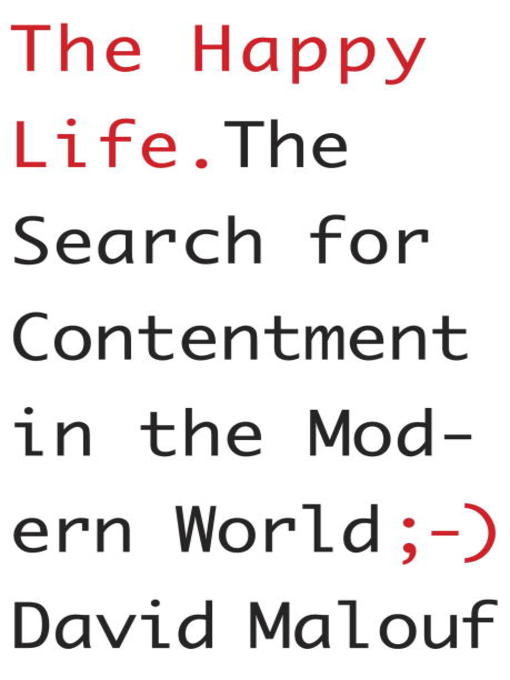
The Happy Life
The Search for Contentment in the Modern World
فرمت کتاب
ebook
تاریخ انتشار
2013
نویسنده
Steve Berryنویسنده
Steve Berryنویسنده
David Maloufشابک
9780307907820
کتاب های مرتبط
- اطلاعات
- نقد و بررسی
- دیدگاه کاربران
نقد و بررسی

September 10, 2012
In a world filled with devastating natural disasters and discouraging economic declines, who can be happy? As award-winning novelist and poet Malouf (Rabsin) reminds us in this yawn-inducing meditation, “happiness is surely among the simplest of human emotions and the most spontaneous.” Drawing deeply from the philosophical wells of Plato, Heidegger, Jeremy Bentham, and others, he reminds us that philosophers have long distinguished the pleasures associated with material goods from the longer lasting contentment that comes from spiritual well-being. Happiness, for the ancients, lay in self-containment and self-sufficiency. Some 18th- and 19th-century thinkers promoted the idea that happiness occurs when individuals achieve certain goals, such as higher production or more land being brought under cultivation. Malouf reminds us that we often confuse the happy life with the good life, which we measure in material terms of proper food and housing, justice, civil liberty, and civil safety. In the end, after all his searching, Malouf comes to the less than profound conclusion that happiness grows out of a balanced life, and that happiness is subjective—different for every person—and fleeting, much like the lessons of this simplistic book. Agent: Sophy Williams, Black Inc. Books (Australia).

October 15, 2012
A slim volume of meditations on the conundrum that is happiness. Early on in the book, Malouf (Ransom, 2010, etc.) reflects on the unique position we find ourselves in with regard to the idea of "unrest," noting that something seemingly in opposition to a broad idea of happiness has undergone a reversal of sorts. Smartphones, Facebook, Twitter, constant news updates, etc.--the situation maintains a state of unrest, without which we're faced with unendurable inactivity, stillness and quiet. The author notes that it's likely that a majority of people reading this book would, when asked if they are happy, report that they "can't complain"--even though the opposite is often true, with disgruntlement about politicians, the pace of modern life and other issues leading to a too-common base line of unrest. Malouf bounces among ideas throughout this short book, calling on a who's-who of philosophers and writers for historical perspective on the winding path happiness has taken through the milleniums. Perhaps the world's interconnectedness in the digital age has led to an increased feeling of insignificance; perhaps not, but Malouf takes these theories and mines Seneca, Thomas Jefferson and others to shed light on both the ideas and their naysayers. At certain points, the author comes off as crotchety and out-of-touch with current realities, but the majority of the text is engaging. A tidy introduction to basic philosophies and their relation to how we view our happiness.
COPYRIGHT(2012) Kirkus Reviews, ALL RIGHTS RESERVED.

December 1, 2012
Even as we lament a sluggish economy, economic uncertainty, or even global warming, we are free of the kind of illness and famine common to earlier eras. So why aren't we happier? Why doesn't the good fortune of the times outweigh the bad? Australian author Malouf offers a penetrating meditation on happiness, quoting thinkers and philosophers from Kant to Plato, from Aristotle to Locke. He gives close examination to Thomas Jefferson's thinking in developing the Declaration of Independence with its famous evocation of the rights to life, liberty, and the pursuit of happiness and the significance of that evocation at the time and since. Malouf draws on etymology, psychology, religion, and philosophy to explore the meaning of happiness in a developed society, when greater freedom and leisure afford the luxury to ponder what makes us truly happy. In this slim volume, Malouf eloquently weighs the appeal of material goods and well-being against the heft of morality and individual longing for something we can't always articulate.(Reprinted with permission of Booklist, copyright 2012, American Library Association.)

























دیدگاه کاربران